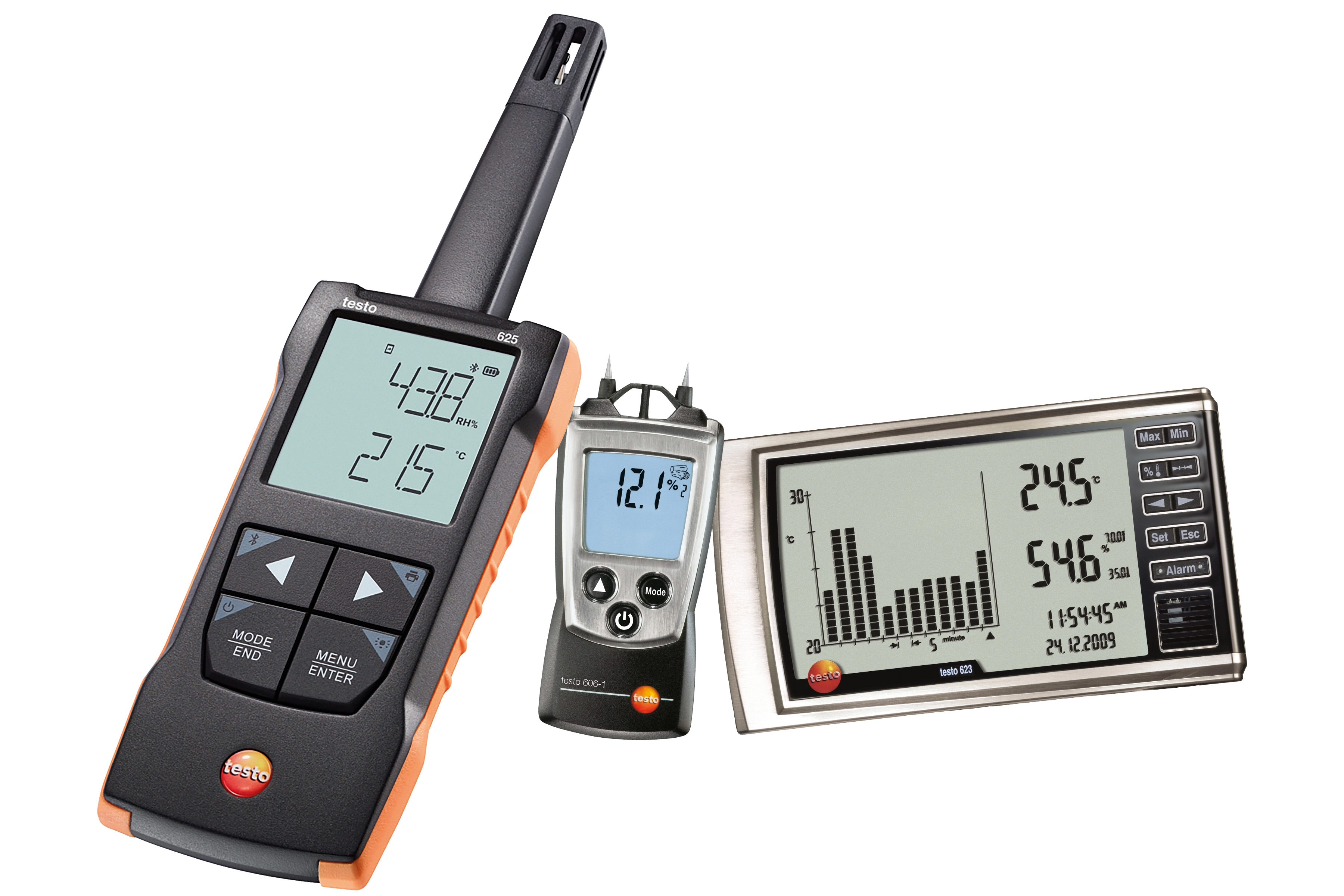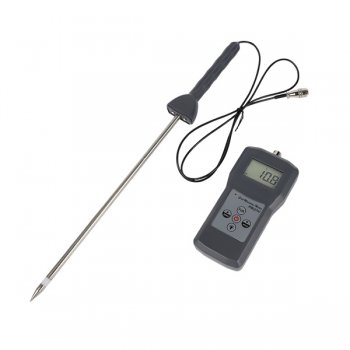Moisture Meter Reviews: Comparing the very best Models for Professional and Do It Yourself Use
Moisture Meter Reviews: Comparing the very best Models for Professional and Do It Yourself Use
Blog Article
The Ultimate Overview to Dampness Meters: A Comprehensive Review and Exactly How They Can Save You Cash
Dampness meters serve as indispensable devices in detecting and checking moisture material in products, assisting in avoiding expensive damages and guaranteeing the quality of products. Understanding the nuances of different types of wetness meters, their applications, and the prospective cost-saving advantages they offer can be a game-changer for specialists and organizations alike.
Sorts Of Dampness Meters
One usual kind is the pin-type moisture meter, which determines the electric resistance between 2 pins put right into a product. Pinless moisture meters, on the various other hand, usage electro-magnetic sensor plates to check a larger area without triggering damages to the product's surface area.

Additionally, there are additionally specialized wetness meters developed for specific products like grain, hay, or dirt. These meters supply accurate moisture readings tailored to the unique residential or commercial properties of the material being examined. Infrared dampness meters determine the thermal residential properties of a material to identify its dampness web content non-invasively, making them valuable for applications where pin or pinless meters may not appropriate. Understanding the different types of dampness meters offered can assist markets choose the most suitable tool for their certain dampness dimension requirements.

Benefits of Using Dampness Meters
Moisture meters use vital advantages in precisely examining and monitoring moisture degrees in varied materials and settings (Moisture Meter). One of the primary advantages of utilizing dampness meters is the avoidance of potential damages brought on by excess dampness. By identifying and resolving high moisture degrees early on, dampness meters aid to avoid mold and mildew development, rot, and structural damages in structures, saving both money and time on fixings. Additionally, wetness meters help in guaranteeing the high quality of materials throughout building and construction or production processes. By properly gauging dampness web content, these devices aid maintain the stability of timber, drywall, concrete, and other products, reducing the threat of problems or failings.
Additionally, utilizing dampness meters can cause increased power efficiency. By identifying areas with high dampness levels, such as leakages or poor insulation, adjustments can be made to improve power preservation and reduce utility expenses. In agricultural setups, wetness meters play a critical function in enhancing plant yields by enabling farmers to keep track of dirt moisture levels and make informed irrigation decisions. Overall, the advantages of using dampness meters extend across different sectors, giving cost-efficient options and promoting much better high quality control techniques.
Exactly How to Pick the Right Moisture Meter
When choosing a wetness meter, it's necessary to ensure that the meter is suitable for the certain product you will be screening. Various materials have differing electrical residential properties that can affect wetness analyses, so picking a meter designed for your material is critical for accurate results. By very carefully evaluating these variables, you look at this website can pick a moisture meter that satisfies your demands and supplies precise moisture dimensions for your tasks.
Appropriate Strategies for Dampness Meter Use

Expense Cost Savings Via Dampness Meter Applications
How can the calculated use of dampness meters lead to significant price savings across various industries? In the farming industry, wetness meters aid in figuring out the optimum time for harvesting plants, avoiding excess or over-drying dampness that can influence the final product's top quality.
In a similar way, in building, wetness meters help avoid costly damages by discovering dampness levels in building materials, such as wood or concrete, which can cause architectural concerns otherwise attended to without delay. By determining issue locations early on, service providers can take rehabilitative steps to stay clear of considerable repairs or substitutes, eventually saving time and money.
In addition, in the food processing industry, wetness meters are crucial for monitoring product quality and making sure conformity with safety and security policies. Home Page By properly determining wetness content in food products, suppliers can prevent spoilage, preserve quality, and reduce waste, causing significant price financial savings. In general, the strategic application of moisture meters is a useful investment that can cause substantial price reductions and improved efficiency across different markets.
Final Thought
In final thought, wetness over at this website meters are useful tools for discovering and measuring moisture levels in various products. By making use of the best moisture meter and following appropriate methods, customers can successfully prevent pricey problems caused by excess dampness.
Wetness meters offer as indispensable tools in identifying and keeping an eye on moisture material in materials, assisting in preventing pricey damages and making sure the high quality of items. Infrared wetness meters measure the thermal homes of a product to determine its wetness content non-invasively, making them helpful for applications where pin or pinless meters might not be suitable.Moisture meters offer indispensable advantages in accurately analyzing and checking wetness degrees in varied products and atmospheres. In agricultural setups, dampness meters play an important function in enhancing plant yields by enabling farmers to check soil wetness levels and make informed watering decisions.In conclusion, dampness meters are valuable devices for determining and spotting moisture degrees in numerous materials.
Report this page